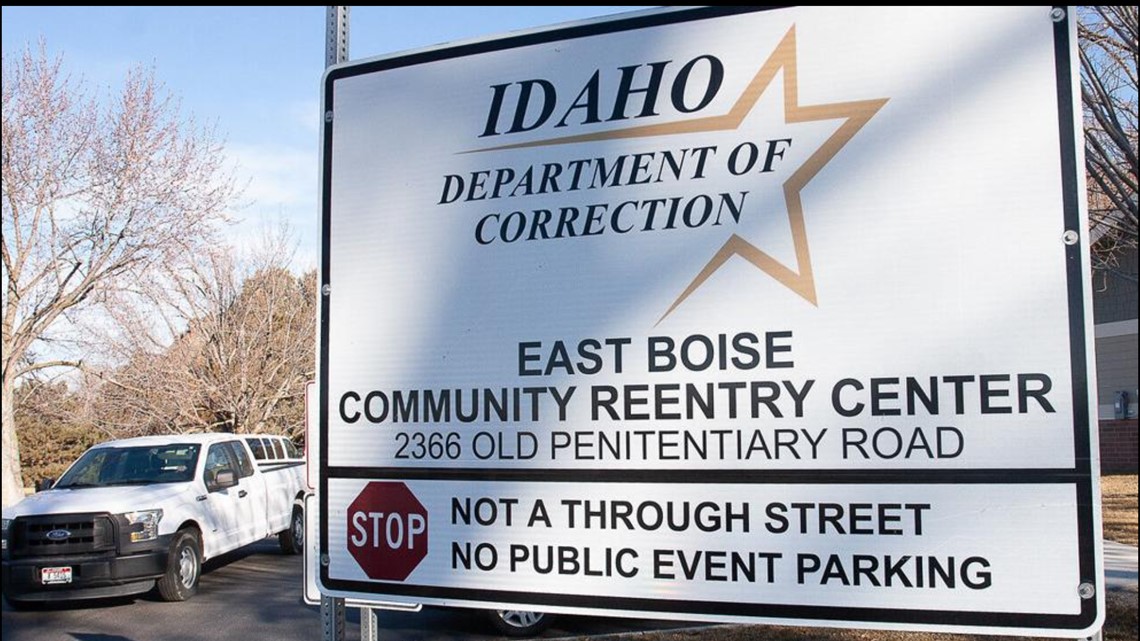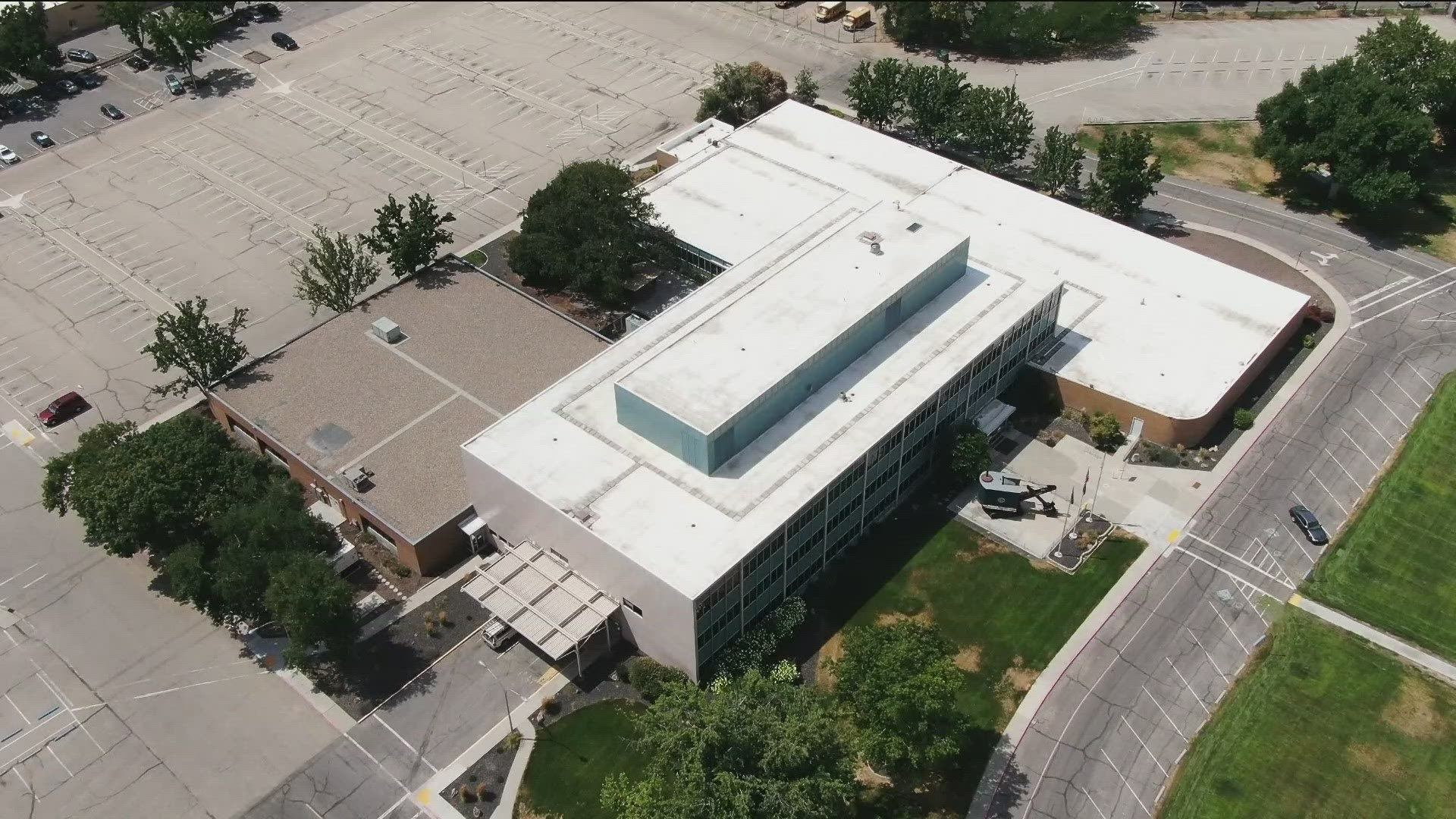BOISE, Idaho —
This story originally appeared in the Idaho Press.
Idahoans shop, eat, and interact with local employees every day, who go about their lives and jobs like everybody else. However, one might never know that at the end of a shift, some of the workers end their nights in a minimum-security correctional facility.
The Idaho Department of Correction runs community reentry programs, which allow low-risk offenders in the facilities to transition toward the end of their prison sentence. These programs can provide them opportunities to get jobs in society, reconnect with family, develop life skills and get comfortable with life outside of incarceration.
The programs can also help change the perception that individuals previously incarcerated can’t be productive members of the workforce.
Shenarra Brown and Amanda Austin are both residents of the East Boise Community Reentry Center, an all-female campus near the Old Idaho Penitentiary. Both are waitresses at local restaurants.
Another correctional facility resident drives them to work, where they earn money to pay off legal fees and make income to help buy things such as a cell phone, car, or space to live.


Brown told the Idaho Press that, in many respects, residents are just like others in the community.
“Being able to be around us and not even know, is gonna absolutely change the stigma. It’s gonna show them that we’re not our crimes. We’re not what we’ve done in the past. We’re these people that are just like everybody else, just learning things and being part of the community,” Brown said.
Austin said she has the support of the community and the regulars that know her at work. Some of her regulars are involved in a recovery program that Austin said she will utilize when she is released.
“They invited me to their church and I had to let them know I’m in a situation where I can’t, and they were completely blown away by it. They were like, ‘You don’t even seem like you would be that type of person to be in prison,’” Austin said.
Kayla Sande, the general manager of the State Street UPS store in Boise, said she began employing work center residents after she realized there is a significant stigma surrounding those with felony charges.
“People automatically profile that individual. I myself feel that if these are members that will be released into our community one day, and if I can support them in any way while they’re finishing up their time in prison, it will help benefit them not only getting a good job but learning some basic skills that might help them accelerate when they get out,” Sande said.
“I just believe that these people have been through a lot in their life and if they’re willing to make a change, I’ve always just wanted to be a part of that.”
Sande said it’s important to employ those who can benefit the business, especially during the pandemic which has created a workforce crisis locally and nationwide. Center residents are eager to work and want to work hard, she said.
According to Jeff Ray, a spokesperson for the IDOC, there are 141 businesses in the local region that employ work center residents, and a total of 225 residents who participate.
Correctional facility resident crimes can include drug-related offenses up to vehicular manslaughter, but Ray specified the individual has to be on good behavior and earn their ability to be a part of the program.
Residents learn life skills while holding local jobs to help them transition to being released. These skills can range from using computer software such as Adobe at UPS to serving multiple tables at once in a restaurant.
Sande said in her store, resident employees learn how to use Excel, Microsoft Word, and other computer programs. She said that correctional facility residents hold a range of responsibilities in her store.
Working in a restaurant has also developed Austin’s interpersonal skills, including being able to relate to others and being more in touch with herself, she said.
“It’s taught me a lot of skills of being able to just kind of step back and take breathers and just realizing people are human, so I’m human,” Austin said.
Working while in the center helps Austin gain footing in the community, she said, so when she is released she will be able to provide for herself.
Brown agreed.
“A lot of us are starting completely over. We don’t have things like cars, houses, cell phones, clothes, or whatever else,” Brown said.
Thirty-five percent of residents’ paychecks go to the work center, which could equal $10 or more an hour. The rest is put into an IDOC account where the resident can choose what to save and spend their money on, like taking a day to shop for items they need.
Employers who participate in the program can get a tax credit.
Additionally, Brown has developed relationships with people outside of the center, ones she is appreciative of. Brown is from Twin Falls and had no idea what coming to Boise would be like. It’s been great so far, she said. Brown has fallen in love with the city and plans to move to Boise and attend school once she is released.
Austin also plans to remain in Boise once she is released and go back to school. She aspires to become a recovery coach.
Gretchen Woodland, the reentry center’s manager, said these opportunities put forth a sense of responsibility for those in the program.
“The things that they would need when they get out — cars, houses, whatever that looks like — they’re able to obtain it on their own versus depending on other people to do it. I think that distance gives a lot of confidence and self-worth when they leave here,” Woodland said. She added that this opportunity would not be possible without the acceptance and effort of the residents’ employers, who work to provide a safe and welcoming environment.
Sande believes businesses that want to strive for the best should consider employing work center residents.
“I would just continue to urge people who may read this, who run small businesses, to utilize the work center and understand that these are people that can greatly benefit them,” she said.
In the end, Austin believes this program is a great way to help give back.
“It’s given me a huge tool to be able to pay back my victims in my cases,” she said.
This story originally appeared in the Idaho Press. Read more at IdahoPress.com
Watch more Local News:
See the latest news from around the Treasure Valley and the Gem State in our YouTube playlist:



